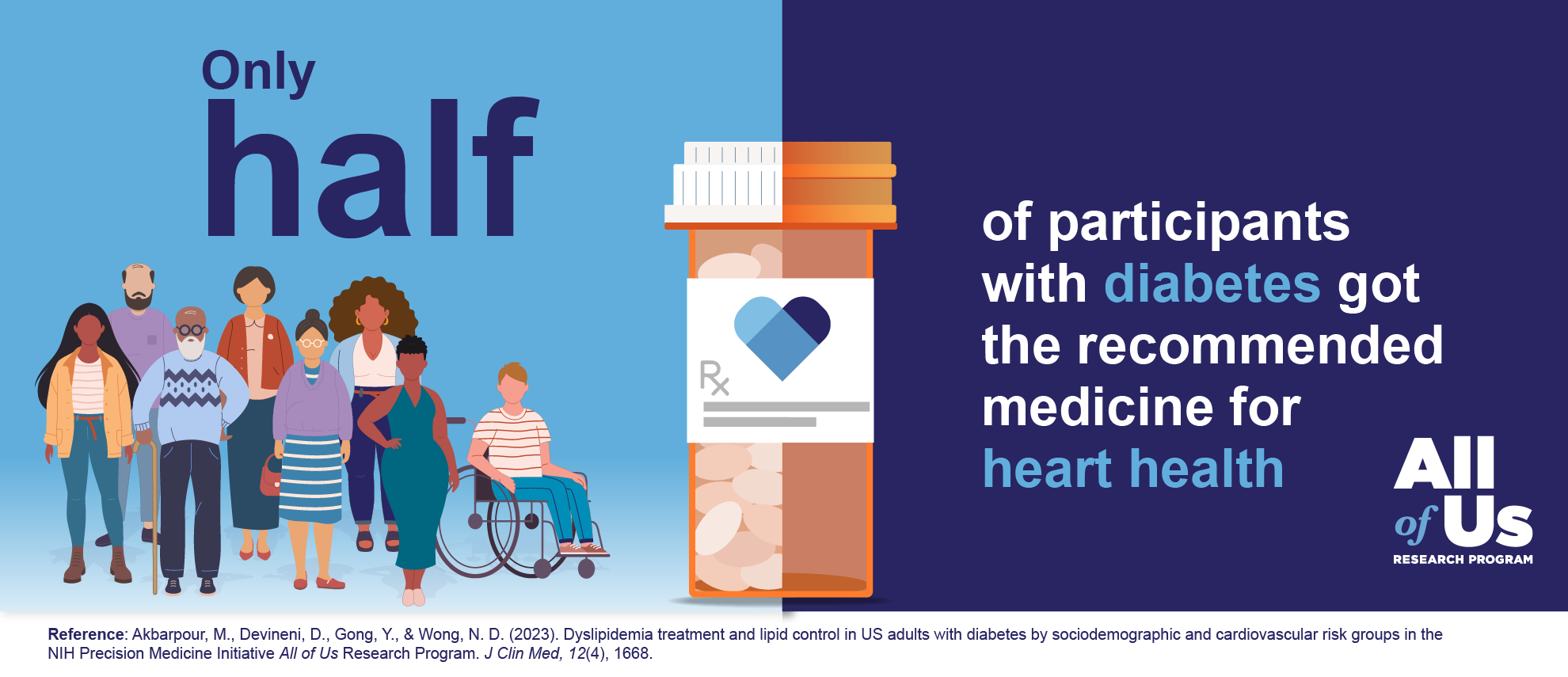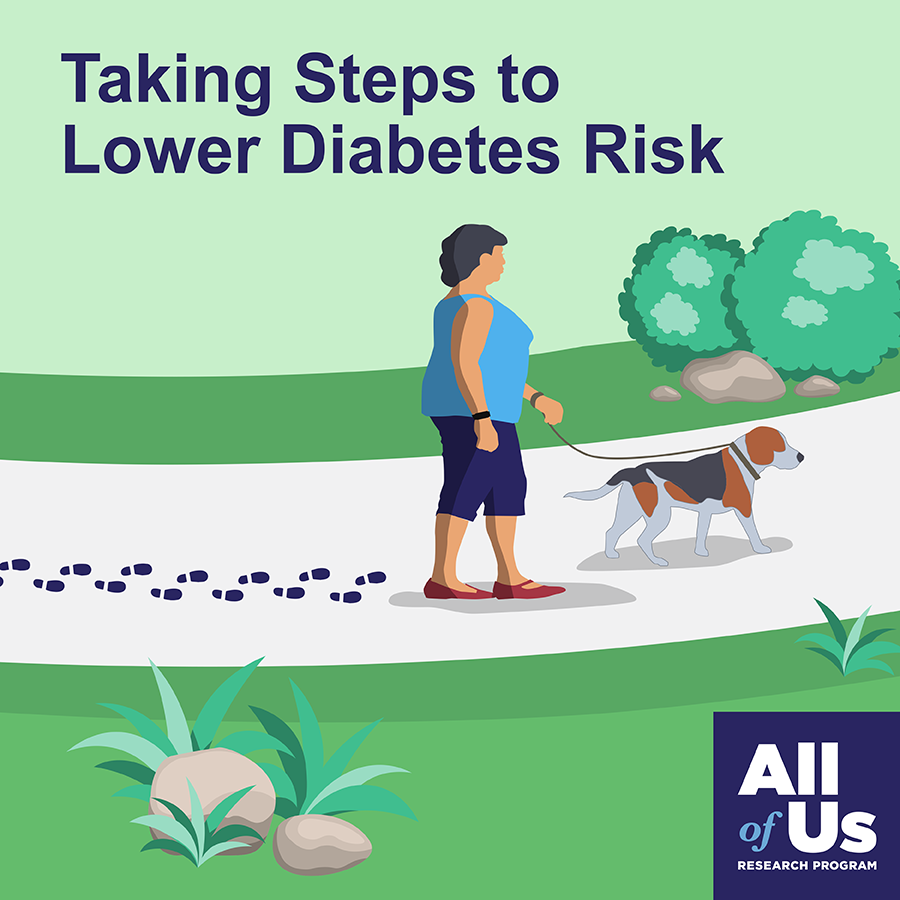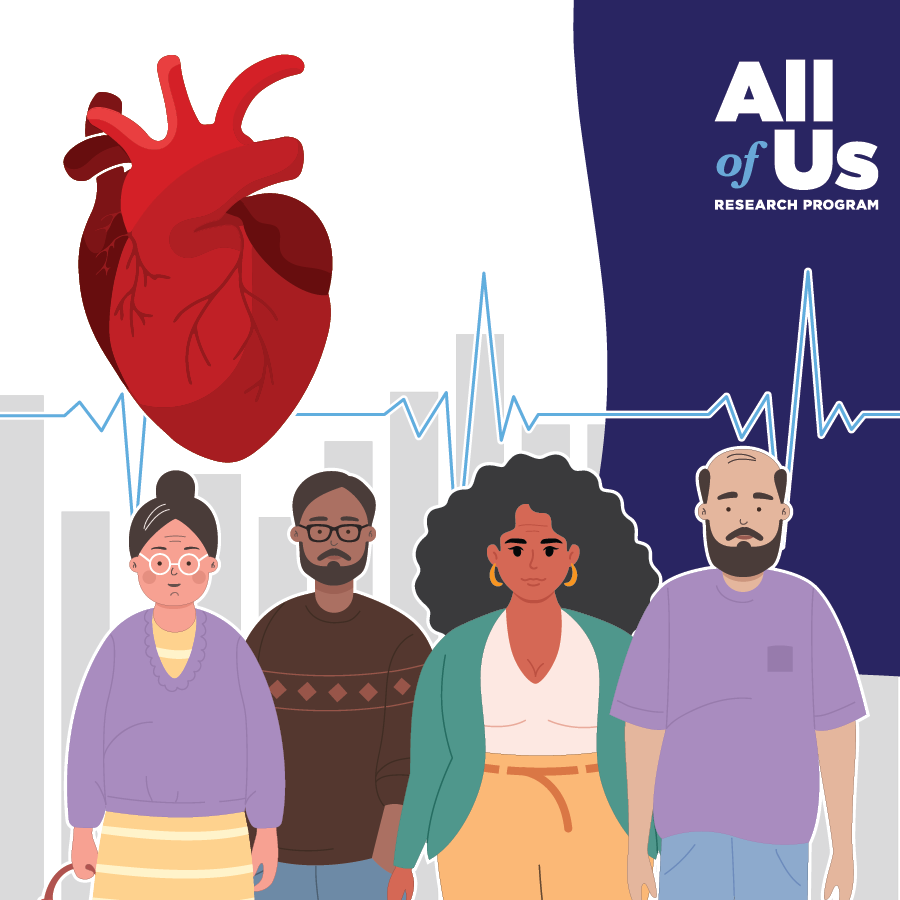
Key Points
- People with diabetes have a high risk of developing heart disease.
- Researchers looked at All of Us data from participants diagnosed with diabetes to find out whether they were getting medicines to manage their risk of developing heart disease.
- Only half of participants diagnosed with diabetes were getting the recommended treatment.
People with diabetes have an elevated risk of heart disease, but many may not be getting the treatment they need to manage that risk. That would put them at high risk for serious heart problems such as heart attack and stroke.
Researchers looked at All of Us data and found that half of participants diagnosed with diabetes don’t get a common medicine that can help protect them from heart disease. In addition, most participants diagnosed with diabetes who already have heart disease were not getting the other medicines recommended for them. The researchers also studied who is most likely to be undertreated. The results were published in the Journal of Clinical Medicine.
Diabetes and Its Complications
Diabetes is a disease that occurs when a person’s blood glucose (also called blood sugar) is too high. Over time, having too much glucose in your blood can cause other health problems, including heart disease, kidney disease, and eye problems.
In addition to addressing their blood glucose, people with diabetes can take medicines to reduce their risk of heart disease. But are they getting those medicines?
To find out, researchers looked at All of Us data from 81,332 participants diagnosed with diabetes. The researchers studied electronic health records, survey data, and physical measurements. They found that many participants with diabetes were undertreated for potential heart problems.
Medical guidelines say that all adults with diabetes should take a medicine called a statin. But only half of adults with diabetes in All of Us were given one, according to their electronic health records. Also, adults with diabetes who already have heart disease should take additional medicines. But fewer than 1 in 5 participants with both diabetes and heart disease were getting the recommended treatments.
The diversity of All of Us participants helped researchers learn that people were less likely to get the treatment they need if they:
- Were part of a racial or ethnic minority group
- Were female
- Had a high school education or less
- Had no health insurance
Raising Awareness and Improving Care
Medicines that lower the risk of heart disease are important for people with diabetes, because heart problems are a major cause of death in this group. Many different circumstances can result in people not getting the recommended medical care. Future research could study possible barriers to accessing treatment that people with diabetes face. For now, this study helps health care providers understand who is at highest risk of undertreatment. That can help providers connect those in need with important medical care.
All of Us participants have helped us recognize the undertreatment of heart disease risk in people with diabetes, particularly among racial and ethnic minorities, women, and people with lower education or no health insurance. This knowledge opens the door to better medical care and better health—for all of us.
Interested in All of Us?
- Read more research highlights.
- Learn about participation in the program.
Conduct research with All of Us
- Learn about opportunities for researchers.
- Find funding to support research using All of Us data.
- See more research projects made possible by All of Us data and tools.


